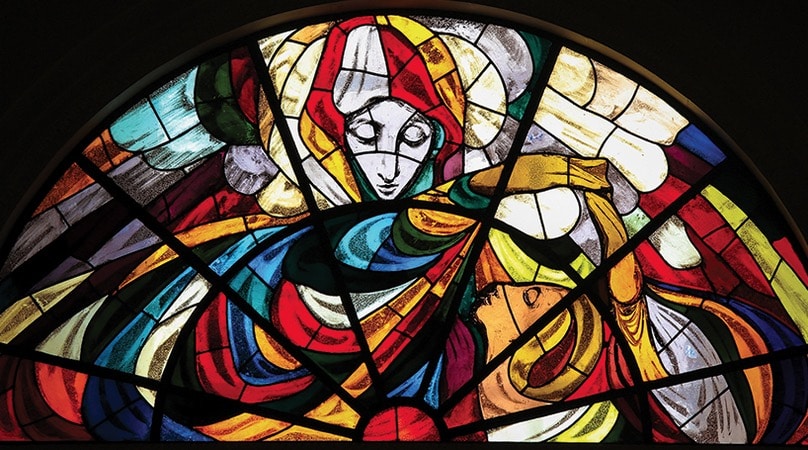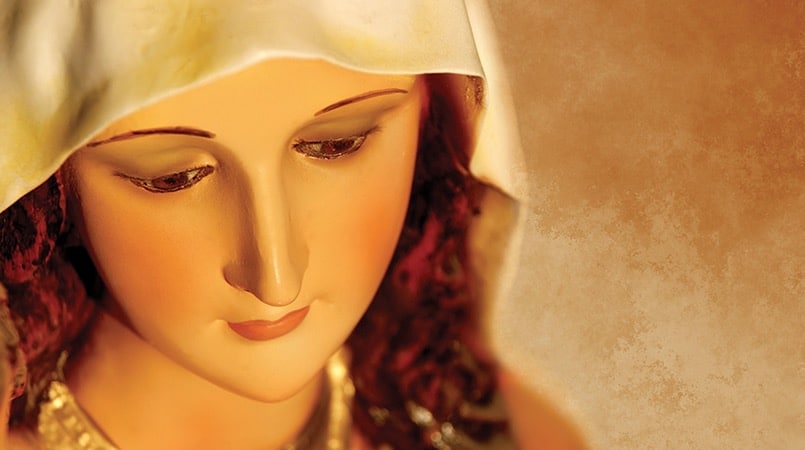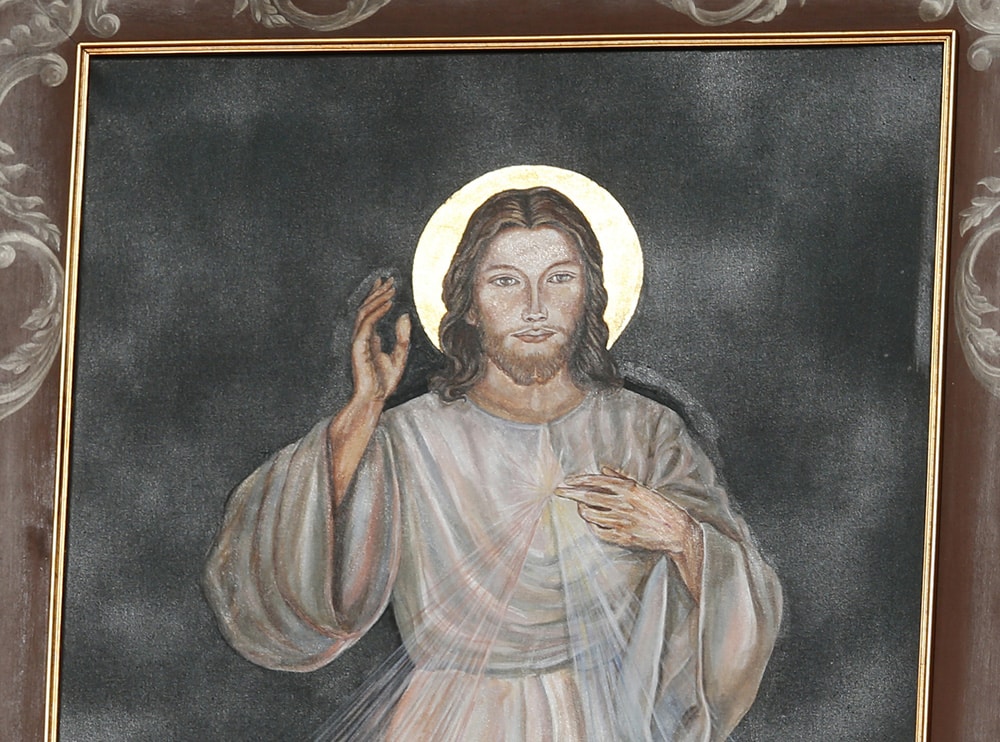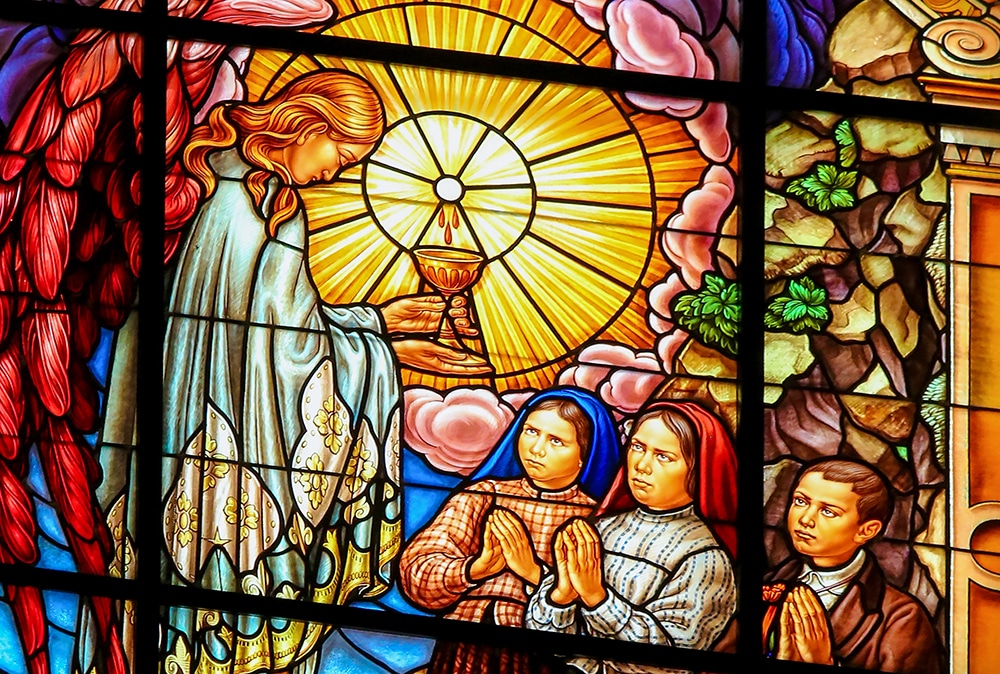Christmas often brings together those who, in some way, were separated before. God and man are brought together. Within the same household, those who practice their faith and those who do not find themselves mingling. So, too, at Christmas liturgy, are regular Massgoers combined with occasional ones — an event we undoubtedly would like to have happen more often.
As longingly as God seeks to draw us into union with himself in the mystery of the Incarnation, so do many of us who regularly practice our faith desire to draw our loved ones into the life-giving mystery of the Mass, even if only for one day. While this desire is sincere — even heartfelt — those who find ourselves caught between our love of the Faith and our love of family know of the potential perils of offending or stirring up strife or unleashing a tidal wave of passive-aggressiveness (from both sides) that can loom large in this blessed time.
So how might we gently, respectfully and lovingly, but also successfully, invite our loved ones to join us at Mass this Christmas — and maybe beyond?
Show them the joy of constancy
If we were to ask Pope Francis about this, he would instruct us to draw our loved ones in “by attraction” (Evangelii Gaudium, No. 15). He has been quite clear that using force — including tactics of guilt and judgment — is not conducive to bringing others into contact with the joy of the Gospel at the heart of the Church. Instead, we must take the more difficult and sweeter path of showing the intrinsic desirability of the Word made flesh. As much on the peripheries of our own families as at the ends of the earth, every attempt at evangelizing “must concentrate on the essentials, on what is most beautiful, most grand, most appealing and at the same time most necessary” (Evangelii Gaudium, No. 35). With this in mind, it’s important to identify what is most desirable about the Mass and about parish life.
An essential component is constancy — both the foundation and the fruit of the mystery of the Eucharist. While invoking St. Augustine’s De Trinitate (“On the Trinity”) would not likely woo our skeptical loved ones, it can help us understand why constancy is essential. In Book 15 of that text, Augustine is reading Scripture and trying to identify the person of the Holy Spirit. He learns that the Holy Spirit is the one who gives the gift of love and who is, in fact, the presence of this gift. That doesn’t sound too revolutionary, except that Augustine comments that the basic criterion for love that the Spirit makes present is not what we typically expect, but nonetheless is what we really want. Love, Augustine teaches, creates abiding; it proves itself in constancy.
This is what the Mass is and what the parish becomes: the space for abiding together in the slow work of love’s constancy. In our present day and age more than any other before, everything seems to be undergoing perpetual change. We have unbelievable means for moving quickly from one thing to another in how we communicate, how we work, how we entertain ourselves and how we navigate daily existence. There is a lot of flux and not a lot of constancy. It is all too common to feel lost or even homeless as our addiction to change grows. One of the main problems with living in an age of rapid and daily change is that we often lack a constant, steady, stable “something” to measure that change — something unchanging to help us to know when change is good, when it’s meaningful and when it matters. And this is precisely what the Eucharist gives us: a constant, steady, stable presence.
Tell them stories about parish life
But we still need to know what to say to our loved ones. How do we invite them to take a step inside with us?
Here’s what I suggest: Share stories that present the fruit of this practice of abiding together in the slow work of love’s constancy. Let’s ask ourselves: What’s most beautiful, grand and appealing about the regular practice of dwelling with one another with Jesus in our midst? What have we seen in the Mass — especially as offered through the ordinary regularity of parish life — that we wouldn’t have seen otherwise? These are the stories we should tell those whom Christmas brings together, and we should tell these stories around the dinner table, over coffee or eggnog, while playing board games, or driving to and from the airport.
What kind of stories, exactly? Well, here are some that I would like to tell.
I would tell of my eldest son, Caleb, who was an altar server for the first time this year. We have photos of him as a child dressed for the part alongside his younger sister — similarly outfitted — processing around our home with toys and trinkets as if the Mass were in motion all around them. What we saw this year was nothing less than make-believe become real life. And we were surrounded by the very same people who remember this lanky adolescent as he once was: scuttling up and down the aisles of the church as a toddler. In that constant space and around this common practice, Caleb has grown and changed.
I would tell of my neighbor, Joe, who died during the first week of Advent this year. He was always the first person you’d see when you walked into church at the 10 a.m. Sunday Mass, because he long ago had appointed himself Head Greeter and Chief Usher. His joviality was a mainstay at our parish, and we all mourned at his funeral. We feel his absence at Mass — especially the ushers, now like sheep without a shepherd. Joe’s death marks a change for our community.
I might talk about Mary Ellen, at whom I’ve come to marvel not because of any single spectacular deed but because of her unassuming fidelity to the duties of sacristan. She is, after all, a world-class legal scholar and renowned college professor who spends every weekend and a fair amount of time in between coordinating the details of liturgies and the movements of ministers. She keeps a low profile while doing this, so I only know that she is serving in this way because I’m there every week, and I’ve noticed what she does before Mass. I admire her for commitment, I’m grateful for it, and I wouldn’t know that admiration or gratitude had we not regularly shared the same space together.
In a similar way, I would remember Robert, who, with his outsized personality, was diagnosed with ALS several years ago. In the months following his diagnosis, I watched him receive Communion each week. At first, he received as he always had — in his hands. After some time, I noticed how his shoulders had narrowed and how raising his arms became more difficult. Eventually, he was only able to receive on the tongue. When his legs failed him, his children or wife would push him up to the altar in his wheelchair. The last time I saw him receive was on the Fourth Sunday of Advent a couple of years ago. His wife wheeled him up while the oxygen tube bringing air to his lungs was connected to the breathing machine she wore around her neck. In one instant, I saw the mystery of the Eucharist and the mystery of marriage joined together in this image of sorrow and joy.
And I might talk about those three or four people who always bring Communion to our homebound parishioners. Seeing them come up to the altar at the end of each Mass to receive the host for others and a blessing for themselves has taught me to see how those who are not physically present to us in the liturgy are made present to us through these ministers, and vice versa. They and we are made one in the Eucharist, and the regularity of that ministry teaches us all to believe this more fully.
Become an instrument of love
Maybe that last image is the one that can comfort those of us who want our loved ones to find the abiding joy we have found, though we cannot force that joy on them. Maybe we are the ministers to those who aren’t there for whatever reason. Maybe by sharing our love with them — our stories, our gentleness, our respect, our patience — we become the signs and instruments of the constancy of love made flesh at each Mass.
We may not be successful in the way we want to be — they may not come with us to Mass this time — but maybe Christmas is the beginning of a new way of being together that we cannot control and that takes time to ripen into the gift of abiding together in Christ’s love.







